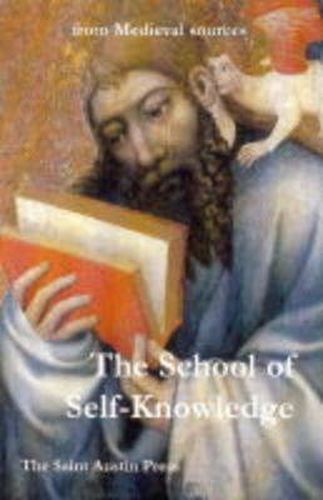Readings Newsletter
Become a Readings Member to make your shopping experience even easier.
Sign in or sign up for free!
You’re not far away from qualifying for FREE standard shipping within Australia
You’ve qualified for FREE standard shipping within Australia
The cart is loading…






Three Cistercians of the school of St. Bernard are the authors of these writings on self-knowledge as the road to true health of soul. The writing, which dates from the late twelfth and early thirteenth centuries, is of a deeply personal, experimental and devotional character. One notices a debt here, not only to the Cistercian fathers, but to the school of St. Victor, which tended to be more speculative. The first of the authors represented, H?linand of Froidmont (1127-1212), had, in his long life, been a scholar and a troubadour, delighting the ear of Philippe Auguste of France with his songs. As a monk, he continued to write, both in Latin and French, with unimpaired verve. In his celebrated verses on death, he requests that Death should pay a visit to his friends: it is not because I love them less, but because the fear of death is a refining fear. It is a fear that reminds us that a man’s last hour plays hide and seek with him …We find a similar approach to H?linand’s in the Meditatio Piissima, the most popular of all the works which the Middle Ages attributed to St. Bernard. Finally, in the Domus Interior, one finds the doctrine of self-knowledge schematized into a method of prayer.
$9.00 standard shipping within Australia
FREE standard shipping within Australia for orders over $100.00
Express & International shipping calculated at checkout
Three Cistercians of the school of St. Bernard are the authors of these writings on self-knowledge as the road to true health of soul. The writing, which dates from the late twelfth and early thirteenth centuries, is of a deeply personal, experimental and devotional character. One notices a debt here, not only to the Cistercian fathers, but to the school of St. Victor, which tended to be more speculative. The first of the authors represented, H?linand of Froidmont (1127-1212), had, in his long life, been a scholar and a troubadour, delighting the ear of Philippe Auguste of France with his songs. As a monk, he continued to write, both in Latin and French, with unimpaired verve. In his celebrated verses on death, he requests that Death should pay a visit to his friends: it is not because I love them less, but because the fear of death is a refining fear. It is a fear that reminds us that a man’s last hour plays hide and seek with him …We find a similar approach to H?linand’s in the Meditatio Piissima, the most popular of all the works which the Middle Ages attributed to St. Bernard. Finally, in the Domus Interior, one finds the doctrine of self-knowledge schematized into a method of prayer.